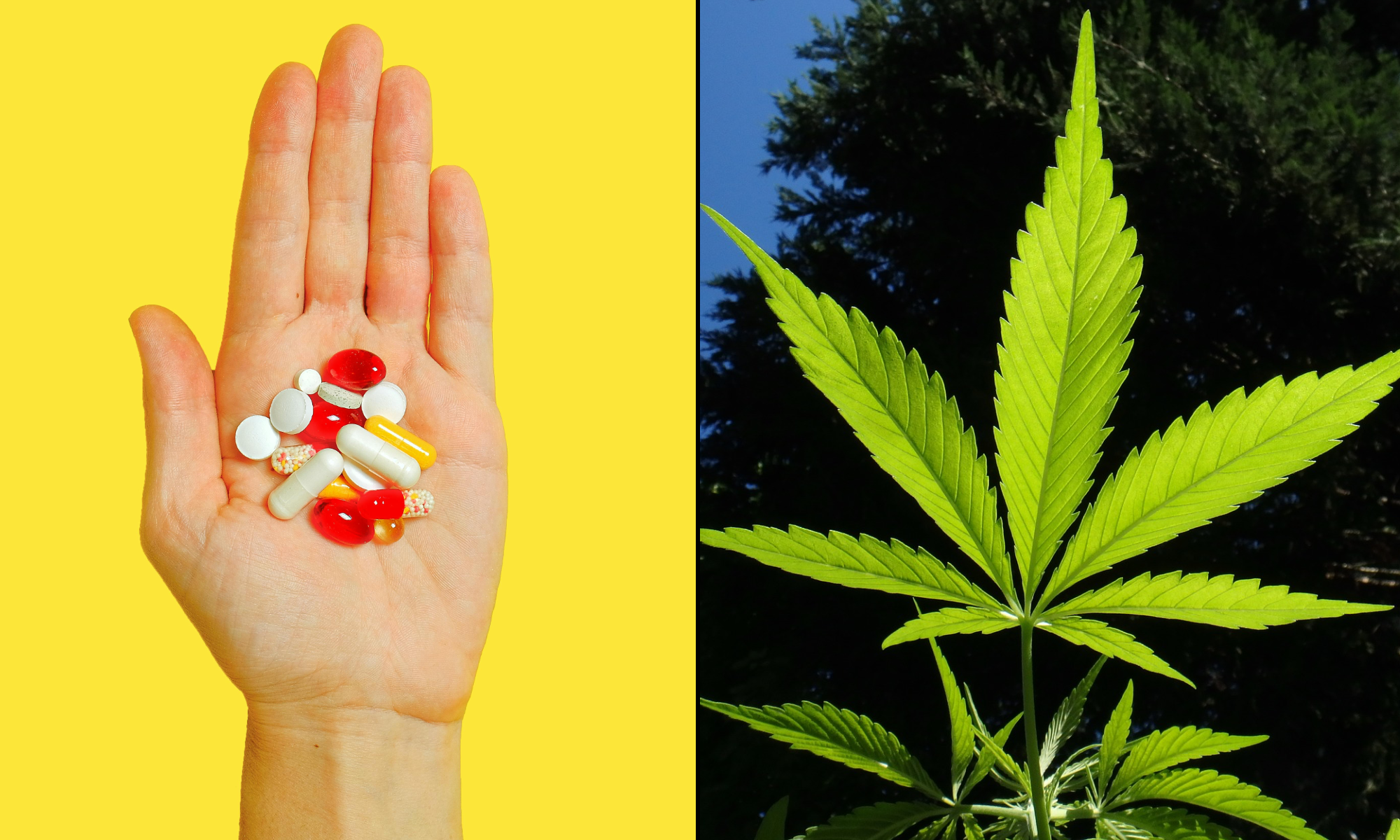Science & Health
Legalizing Marijuana Helps Cancer Patients Reduce Opioid Use, Federally Funded Study Published By AMA Indicates

Legalizing marijuana for medical or recreational purposes is “significantly associated with reduced opioid use among patients diagnosed with cancer,” according to a new federally funded study published by the American Medical Association (AMA).
Examining prescription drug claims data from an average of more than 3 million patients annually from 2007 to 2020, the researchers found “significant reductions…in the rate of patients with cancer with opioid prescriptions, the mean daily supply, and the mean number of prescriptions per patient after medical and recreational cannabis dispensary openings.”
“This study’s findings indicate cannabis may be a substitute for opioids in the management of cancer-related pain,” the paper, which was published on Friday in the Journal of the American Medical Association (JAMA) Health Forum and was funded by a grant from the National Institute on Drug Abuse, concludes.
“Results of this study suggest that cannabis may serve as a substitute for opioids in managing cancer-related pain, underscoring the potential of cannabis policies to impact opioid use.”
The opening of both medical and recreational marijuana dispensaries in a given state were associated with “significant reductions in all opioid outcomes,” the researchers from the University of Georgia, Indiana University and University of Chicago, wrote.
“The rate of patients with cancer with opioid prescriptions changed by −41.07 per 10 000, the quarterly mean days’ supply by −2.54 days, and the mean number of prescriptions per patient by −0.099. Recreational dispensary openings were also associated with reductions in opioid outcomes, though estimated treatment effects were smaller. The rate of prescriptions changed by −20.63 per 10 000, the mean daily supply by −1.09 days supplied per prescription, and the mean number of prescriptions per patient by −0.097.”
The analysis showed that reductions in opioid prescription rates and daily supply were greater when dispensaries actually opened than when states initially changed their laws to allow for medical marijuana use—”highlighting the potential impact of easier cannabis availability.”
There were no significant differences opioid use as a result of cannabis reform based on age, sex, or race and ethnicity—”indicating that dispensary openings may influence opioid prescription patterns similarly across demographic subpopulations,” the paper says, suggesting that “cannabis availability may help diverse patients equally manage cancer-related pain if the observed reductions reflect substitution to cannabis.”
“These findings indicate that medical or recreational cannabis laws may be significantly associated with reduced opioid use among patients diagnosed with cancer.”
The researchers recommended that future studies “explore individual-level impacts, the mechanisms underlying these changes, and the longterm effects of cannabis policies on cancer pain management.”
The overall results are “consistent with prior research suggesting that cannabis may serve as a substitute for opioids in managing pain,” the study says.
A separate paper published this month similarly found that medical marijuana legalization is “associated with significant reductions in opioid prescribing.”
In August, meanwhile, Australian researchers published a study showing that marijuana can serve as an effective substitute for opioids in pain management treatment.
Another study published earlier this year in the journal Drug and Alcohol Review found that, among drug users who experience chronic pain, daily cannabis use was linked to a higher likelihood of quitting the use of opioids—especially among men.
Research published late last year also found that legalizing medical cannabis appeared to significantly reduce monetary payments from opioid manufacturers to doctors who specialize in pain, with authors finding “evidence that this decrease is due to medical marijuana becoming available as a substitute” for prescription painkillers.
Other recent research also showed a decline in fatal opioid overdoses in jurisdictions where marijuana was legalized for adults. That study found a “consistent negative relationship” between legalization and fatal overdoses, with more significant effects in states that legalized cannabis earlier in the opioid crisis. Authors estimated that recreational marijuana legalization “is associated with a decrease of approximately 3.5 deaths per 100,000 individuals.”
“Our findings suggest that broadening recreational marijuana access could help address the opioid epidemic,” that report said. “Previous research largely indicates that marijuana (primarily for medical use) can reduce opioid prescriptions, and we find it may also successfully reduce overdose deaths.”
Another recently published report into prescription opioid use in Utah following the state’s legalization of medical marijuana found that the availability of legal cannabis both reduced opioid use by patients with chronic pain and helped drive down prescription overdose deaths statewide. Overall, results of the study indicated that “cannabis has a substantial role to play in pain management and the reduction of opioid use,” it said.



